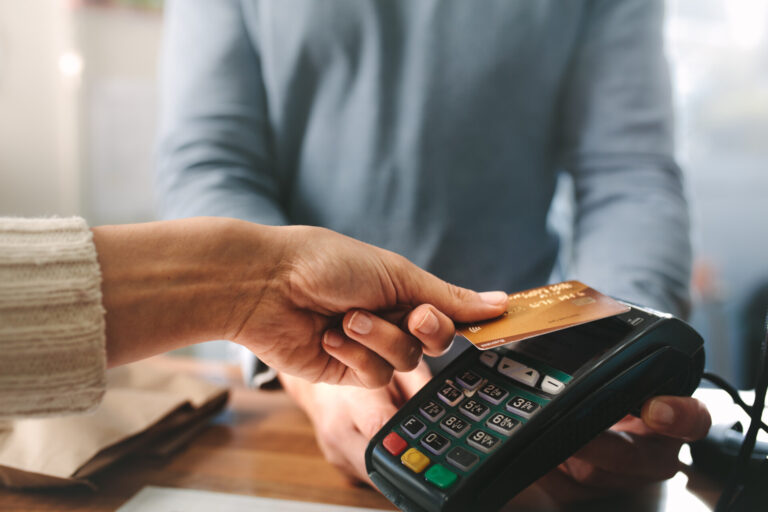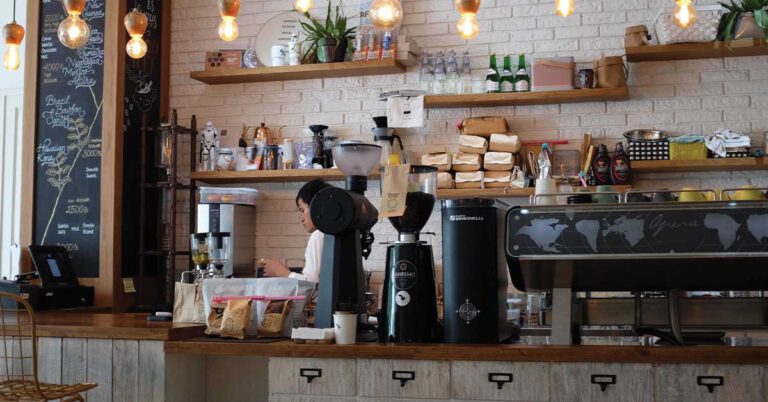Starting a bar – let alone starting a bar that succeeds – might seem challenging since there’s so much competition. But it’s actually not that hard.
In fact, most bars fail due to the exact same mistakes that can easily be avoided. All you need is some basic planning, proper design, good hiring and management, and common sense oversight.
In this article, we’re going to show you a simple step-by-step process you can use to succeed in even the most competitive markets. Once you learn how to open a bar the right way, you can duplicate this process over and over if you choose to open other bars in the future.
Here’s what you’ll learn:
- How to set yourself up for success with your early decisions
- Tips for opening a bar that will help you avoid key mistakes
- An overview of licensing requirements
- How to hire the right people
- Marketing tips
- Some average costs involved
Let’s get to it.
(Start Here) 3 Reasons Many Bars Fail
A large percentage of bars fail for one of three reasons. If you learn from these mistakes, you could easily save tens of thousands of dollars and years of your time.
Please read and consider these very carefully before opening your bar:
- Their bars didn’t fill a need: a bar is a business, first and foremost. You obviously want to like your own bar, but what matters more is attracting long-term customers.
- They hired the wrong people: you need friendly, hard-working professionals who can be the adults in the room when dozens of people are drinking.
- They didn’t market the bar properly: bars often fail simply because their owner isn’t putting enough effort into marketing. Posting on Facebook isn’t enough.
Okay, if that hasn’t scared you away, let’s move on to actually getting the doors open and making some money.
Step 1) Make a Business Plan
If it doesn’t work on paper, it’s not going to work in real life.
We recommend planning everything and making projections for the next 3-5 years to the best of your abilities. This includes the basics like:
- Rent
- Utilities
- Wages (bartenders, waitstaff, security, cooks, bussers, etc.)
- Equipment (beer fridges, taps, wine fridges, mugs, industrial kitchens, tables, and stools)
- Your liquor license (including renewals)
- Promotional costs
- Up-front alcohol and food costs
- Taxes
- Potential avenues for growth
- Insurance
Ballpark figures for all of these things can be found online or from a local accountant or lawyer. You could even try asking local bar/restaurant owners for estimates (don’t forget to ask in local Facebook groups).
But this is just the beginning.
You also need to include:
- Market research: Are there other successful bars of your type in the area or a similar area? Is your area growing? How accessible is it (parking, public transport, etc.)?
- Target market: What do they like to do? Why will they come to your bar? What’s their average income?
- Unique selling points: What makes your bar better than the others? Atmosphere? Staff? Food? Unique drinks? Location?
- Price point: Put together a sample menu. Be sure to mark up your prices enough to cover your cost of goods sold (COGS), overhead, and a decent profit margin. Make sure your target market can afford your prices.
Quick tip – Choosing your bar theme
Whichever concept you choose, it has to fit your local market. Remember, it’s not about what you want. If this is your first bar, we suggest you start with something simple, such as a small beer bar.
The best thing to do is boots on the ground research – talk to other bar owners, drive around and see how many bars there are, talk to the local Chamber of Commerce, and post on local groups to get a feel for things before launching the process.
Step 2) Choose the Right Location and Space
Location obviously matters, but it’s not the be-all, end-all. Your venue/space is arguably more important. In fact, a common reason bars fail is that the rent is just too high, which pushes prices up and chases away customers.
Back to location and venue.
What matters for location?
The most important location factors are:
- Is it central for your demographic?
- Is there ample parking nearby (if a large percentage of your clientele drives cars)?
- Is it clearly visible to passersby (if you have a pub or sports bar)?
- Is it subject to strict zoning regulations? If you plan to open your bar near a school or church, for example, you may face opposition from those entities.
What matters for the venue?
Here’s what to take into account:
- Size: Smaller pubs, cocktail bars, or sports bars can get away with 1,000-1,500 square feet. It’s better to be too small than too big. An empty space turns off customers and passersby and just doesn’t “feel like a bar.”
- Layout: You want the entrance to be wide enough for people to easily enter. The entrance should lead directly to the bar so that the bar is the first thing people see. If you plan to have a dance floor, it must be in the back and railed in so people know where it starts and ends.
- The structure: How much will renovations cost? Is the space falling apart? Are there rusty nails sticking out of the walls? Getting a space up to code could EASILY cost as much as opening the bar itself.
Step 3) Get The Proper Licensing
Start by consulting the local authorities, as many areas have their own restrictions. Some cities or states might even have a finite number of liquor licenses available.
Next, contact the nearest Alcohol and Beverage Control (ABC) board.
There are two different licensing categories: on-premise and off-premise. Since you’re opening a bar, you’re going to need an on-premise license.
At the very least, you’ll most likely need:
- A business permit
- Zoning and building permits
- An Employee Identification Number (EIN)
- A sales tax permit
- A food permit
- Music permits (if you’re going to play live copyrighted music)
From there, you will most likely need just one of the following licenses, but it’s best to double check with your ABC board or an attorney.
Tavern: for when your primary revenue is alcohol.
- Brewery: for when you make your own beer on the premises.
- Restaurant: this limits the percentage of your revenue that can come from alcohol.
- Beer and wine: only for beer and wine – you can’t sell hard liquor.
Depending on your state, you may also need:
- Proof of insurance
- Criminal background checks
- Photos of the bar
- A sample menu
- A copy of the certificate of the title
Once, you’ve got all of this in order, contact your local ABC board and fill out the paperwork. Normally, this takes anywhere up to 90 days. If you’re in a large, competitive market like New York, Chicago, or Los Angeles, consider using a professional firm or expediter. Chicago, for example, even provides a database of license expeditors. They have in-depth knowledge and city connections that may get your licenses for you in a fraction of the time.
How much will it cost to get a liquor license?
Each state varies. In the larger, more populated states, it’s generally more expensive to get a liquor license. For example, in New York it can cost up to $4,500 while in Indiana, it may only cost $500!
A general ballpark figure is around $1,000 to $2,000 for a liquor license including the application fee.
Step 4) Hire the Right People in Each Role
Getting the right people is one of the biggest reasons why bars become (or don’t become) profitable.
The hospitality industry has a high turnover rate, but a good hiring process can help lower your turnover rate.
Here’s some hiring advice:
- Start with the head bartender: you need a professional with leadership skills. All the other bartenders and staff will look to them for direction. Hire someone with experience. Ask around town, go on Facebook groups, put out an ad in the local papers – just make sure you get someone good.
- Other bartenders: the most important skills for bartenders are pouring, friendliness, and professionalism. Remember, they’re going to be managing rooms of drunk people. Make sure to only hire people with experience and qualifications.
- Servers and staff: you want to hire motivated people based on recommendations and prior job experience. Always ask for references.
- Security: good bouncers should be friendly, humble, and mild mannered, since some patrons want to start a problem where there isn’t one. Of course, they should also be able to handle themselves physically and force people out when necessary.
“A players” tend to know other “A players”. So, always use core staff members to recommend other employees. If they’ve proven to be professionals, they probably know other professionals.
You can also use:
- Facebook groups
- Local family recommendations
- Allbartenders.com
- Ebsmatchstaff.com
- harri.com
According to Indeed, the average wage for a skilled bartender is around $16 an hour. We suggest paying even more to attract and keep the best talent.
Step 5) Purchase Inventory
A small bar can spend thousands of dollars every month on alcohol.
The best thing to do is contact a local wholesale distributor and buy in bulk. See if they have any way to store it for you. That way, you can purchase more, get a bigger discount, and not have to pay to store it.
Not sure where to start? Just Google it. Or you can ask around for recommendations or contact the local liquor commission for a list of licensed distributors.
Here’s a list of some of the largest distributors in the USA by region.
Track EVERYTHING. The more you know, the more you grow. For example, if you notice a certain type of beer makes you more profitable than another, you can display that type of beer more prominently.
Step 6) Learn to Market Your Bar
In the social media age, you have massive reach and a lot of it is 100% free.
But first, let’s get a few old-school tips out of the way:
- Make partnerships with promoters and pay them a fee for everyone who uses one of their “promo cards.”
- Make sure to run themed nights and events like happy hours, 2-for-1 deals, live music nights, or even a bar league for darts or pool.
- Don’t neglect advertising in local outlets like newspapers, travel magazines, or even just local flyers at a supermarket or the Chamber of Commerce.
- Plan a grand opening with flyers, a big sign, and drink specials, and invite all of your friends and family (encourage them to invite others and don’t hesitate to promise free drinks).
Okay, now on to marketing online. These should all be in place BEFORE you open your doors.
- Set up a Google My Business Page: make sure there are photos, your menu, and your address. Incentivize your patrons to leave reviews and respond to all of them.
- Set up social media profiles: Facebook and Instagram are mandatory. Make sure to set up a fan page too. Make sure to have a great description and photos.
- Get active in Facebook groups and local pages: join every single local group for a reasonable distance in every direction and promote as much as each group allows. Join city groups, foodie groups, restaurant groups, nightlife groups, etc. Don’t come across super salesy, and always give real recommendations for people living in the local area – even if they don’t directly benefit your bar. Build a brand that people love and they will come to your bar. Interact with others under your bar’s profile if possible.
- Post often: photos, live stories, events, awards – post anything that people might like. Boost your posts or target people in your demographic. You can create events, target them to your audience, and boost them.
- Post videos and stories: short reels, Instagram stories, and Facebook stories can potentially reach thousands of people for free. Encourage guests to post stories and tag themselves. You can even reach out to local influencers and pay them to tag themselves having a great time at your bar.
Step 7) Open Your Doors
Now you’re ready to open your doors. Remember to throw a grand opening party.
Here are some quick tips:
- Create an event on Facebook and promote it.
- Invite as many people as possible.
- Connect with local people with some gravity (no pun intended!) and get them to endorse you.
- Hire a local band to play at your bar.
- Support local charities.
- Get your distributors to promote you (they want you to stay in business).
- Talk to the local Chamber of Commerce.
- Run giveaways or raffles.
Lastly, make sure you get a top-notch point-of-sale (POS) system – it can make a massive difference in sales.
Union, for example, helps bars and restaurants increase sales (and tips) by an average of 28%. The system is designed specifically for busy bars and clubs, helping them reduce labor fees, lower card fees, and increase customer loyalty. It’s easy to learn, and you can schedule a free demo any time.




